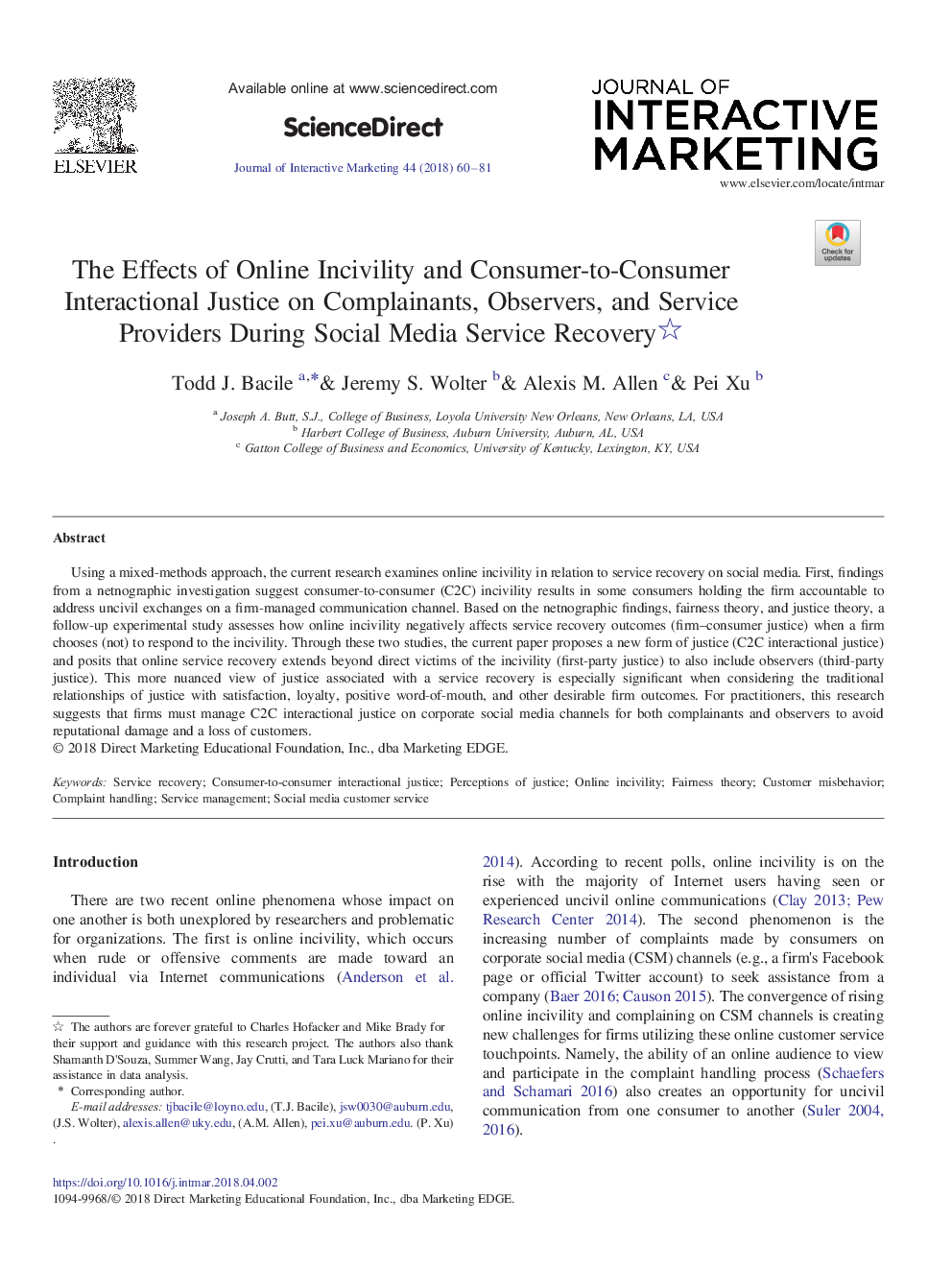| Article ID | Journal | Published Year | Pages | File Type |
|---|---|---|---|---|
| 8954493 | Journal of Interactive Marketing | 2018 | 22 Pages |
Abstract
Using a mixed-methods approach, the current research examines online incivility in relation to service recovery on social media. First, findings from a netnographic investigation suggest consumer-to-consumer (C2C) incivility results in some consumers holding the firm accountable to address uncivil exchanges on a firm-managed communication channel. Based on the netnographic findings, fairness theory, and justice theory, a follow-up experimental study assesses how online incivility negatively affects service recovery outcomes (firm-consumer justice) when a firm chooses (not) to respond to the incivility. Through these two studies, the current paper proposes a new form of justice (C2C interactional justice) and posits that online service recovery extends beyond direct victims of the incivility (first-party justice) to also include observers (third-party justice). This more nuanced view of justice associated with a service recovery is especially significant when considering the traditional relationships of justice with satisfaction, loyalty, positive word-of-mouth, and other desirable firm outcomes. For practitioners, this research suggests that firms must manage C2C interactional justice on corporate social media channels for both complainants and observers to avoid reputational damage and a loss of customers.
Related Topics
Social Sciences and Humanities
Business, Management and Accounting
Marketing
Authors
Todd J. Bacile, Jeremy S. Wolter, Alexis M. Allen, Pei Xu,
